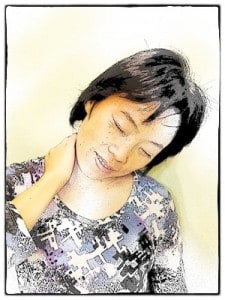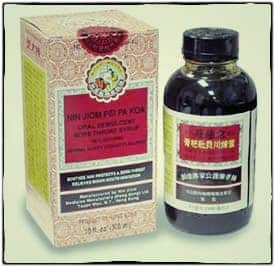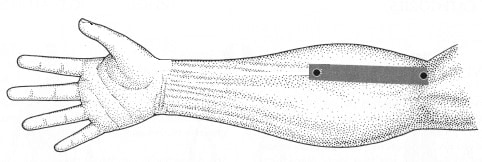There comes a point where you can not remember the last time you felt well. That day when you realize the vitality you remember having has gone missing. Your sleep is long, but fulfilling,  and your head aches in an indeterminable way. The sinuses have uncomfortably dried up, and there is a nagging and frustratingly unproductive cough that only seems to make everything feel a bit worse.
and your head aches in an indeterminable way. The sinuses have uncomfortably dried up, and there is a nagging and frustratingly unproductive cough that only seems to make everything feel a bit worse.
You’ve been through the NyQuil, DayQuil, cold and flu this, and extra-strength that. The over-the-counter medications served only to dry you out, but not resolve the (now desiccated) congestion and cough. Most likely, somewhere in the course of your cold or flu you’ve been prescribed an antibiotic as well. Usually to no avail. And for good reason too. Antibiotics don’t treat viral conditions. And they are not a zero sum game either. Meaning if they don’t work at least they will not cause harm. They do. They decimate the bacteria of digestive tract. So now your digestion is not quite up to snuff either. No wonder you are fatigued and not healing.
When is the best time to use Chinese medicine to treat the common cold?
Ideally at the very beginning when you first get that metallic feeling in your nose, or chill that will not go away. But most of us are too busy. We lean on the promise of some over-the-counter meds that mask the symptoms, so we can push when it would be better to rest. Or call the primary care doctor who often prescribes a Z-pak, which further compromises our immunity by injuring the digestive tract. Several weeks later the lingering cough and fatigue make us wonder if we will ever feel like ourselves again. Here too, acupuncture and Chinese herbs are very helpful.
What’s going on? It was just a common cold.
Common? Yes. But that does not mean the situation might not be complex. There are some issues with the montage of readily available cold medications that often lead to a long recover.
Problems caused by over-the-counter cold remedies
First and foremost most contain drugs that reduce fevers. When you have a cold you need that fever. It is your body’s built-in way of dealing with pathogenic invaders. Reducing the fever results in an incomplete immune response. So rather than being killed and ejected from the body, pathogens linger. You feel a bit better, and then a bit worse. Back and forth you cycle between chills and a slight fever. And your digestion while perhaps not bad, also is not exactly right either. Two millennia ago the Chinese recognized this kind of condition where you are stuck in between illness and everyday life. They call it a shaoyang (1/2 interior, 1/2 exterior) condition, and there are a number of formulas in the Chinese pharmacy that can turn this around in just a few days.
The other problem with turning to over-the-counter cold and flu remedies is that they suppress coughing and dry the mucus membranes. Once again, going exactly against what your body needs to do to expel the waste products of a viral infection. You need a cough, a productive cough, to clear the cellular debris from your lungs. And for mucus to be cleared from the body it needs to be moist and mobile. Drying it out with the various decongestant drugs makes it more difficult for your body to transform or expectorate. And thus the lingering, unproductive cough, and feeling of sinus congestion even though it seems you can to some extent breathe through your nose. The treatment strategy here is to use herbs that moisten the lung secretions, which will in turn allow for a productive cough, and internally help the body to metabolize and remove the excess phlegm. The body can only do this when the phlegm is moist and mobile. Dry it up and you might as well be chiseling concrete.
Home treatment
What can you do for yourself at home to help?  First of all, warm fluids are more beneficial to those with a cough. Stop the iced drinks and go for hot ones! Even something as simple as hot water (with or without lemon and honey) is soothing to the digestion and helps a dry and tickly throat to settle down. If you are up for a trip to the Chinese grocery store a bottle of loquat/fritillaria syrup is a good idea. Mix this into some hot water to soothe the dry cough and moisten the phlegm so you can get rid of it.
First of all, warm fluids are more beneficial to those with a cough. Stop the iced drinks and go for hot ones! Even something as simple as hot water (with or without lemon and honey) is soothing to the digestion and helps a dry and tickly throat to settle down. If you are up for a trip to the Chinese grocery store a bottle of loquat/fritillaria syrup is a good idea. Mix this into some hot water to soothe the dry cough and moisten the phlegm so you can get rid of it.
Acupressure is also helpful. There is a point on the Lung channel that is especially effective for helping with coughs and improving lung function after it has been diminished due to an accumulation of dry phlegm. Kong Zui, Lung 6, is easy to find and often exquisitely tender on those who are suffering from lingering coughs. Giving this point some massage throughout the day will help your lungs to clear the remains of that metabolic debris that has caked itself onto your bronchials and tickles your throat.

Palpate in the area shown in the diagram here. You will either find areas that feel like there are phlegm nodules under the skin, or areas that are very sensitive to the touch. This is where you want to massage with some vigor, and yes, it will smart a bit as you do so. As your lungs get better, this point becomes less tender. Work this point three times a day for five minutes at a time.
Gua sha, which is useful in preventing colds, also can be used to release that tight feeling in your upper back from too much coughing. Releasing the tissues in the upper back also helps with lung function, plus it releases any lingering pathogenic heat trapped in the muscle layer. It’s easy to do watch a quick demo on how to do gua sha at home.
Visit your acupuncturist for help with resolving a lingering cold with Chinese medicine
A treatment or two with acupuncture and the right herbs can quickly help you to regain your health and vitality. If you have been suffering for weeks or even months with the effects of a lingering cold or flu, put an end to it by getting some help by both resolving the lingering pathogen and boosting your immunity.
